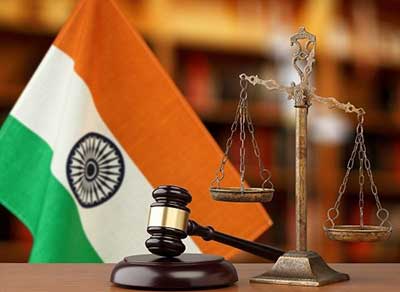Date: 31/12/2022
Relevance: GS-2: Structure, Organization, and Functioning of the Judiciary
Key Phrases: constitutional courts, economic impact of judicial decisions, Sterlite Copper plant, Shivashakti Sugars Limited case 2017, expert committees.
Why in News?
- There is a need to institute a mechanism for the judiciary to consider the economic implications of its decisions, particularly for India’s vulnerable, before pronouncing them.
Need for Holistic Assessment:
- There is a need for an assessment of the impact of different options available to the courts on diverse stakeholders, whether or not they are legally represented, and for taking decisions that avoid adverse repercussions for those who have no connection with the wrongdoing in question.
- The Constitution empowers courts to take such a holistic view, thereby imposing a moral obligation to do so wherever necessary.
- There are instances galore of judicial decisions that severely hit thousands of jobs, like the judgments that cancelled telecom licenses and mining leases en-masse.
- Our constitutional courts are morally obliged to prevent such consequences.
- A judiciary cannot be future-ready if it is unable or unwilling to appreciate the economic consequences of its decisions on unrepresented groups. It must no longer play deaf to the cries of the voiceless.
Case studies:
- Goa Airport Case:
- Recently, the Prime Minister inaugurated Manohar Parrikar International Airport at Mopa, Goa.
- This airport is likely to boost tourism, create significant direct and indirect employment opportunities, ensure customer comfort and give a fillip to the Goan economy.
- While there has been a felt need for a new airport in Goa for several years, its construction has been intermittent.
- A reason for the interruptions was the suspension of its environmental clearance by the Supreme Court (SC), potentially causing immediate job losses estimated at around 1,500 workers and indirectly hurting about 6,900 persons for no fault of theirs.
- The suspension lasted a full eight months, contributing to a cost escalation of around ₹715 crores.
- Sterlite Copper plant:
- Several affected citizens have recently demanded the reopening of a Sterlite Copper plant in Thoothukudi, Tamil Nadu, so that the area’s economy can revive.
- Its permanent closure was ordered by the Tamil Nadu Pollution Control Board and the state government, which was endorsed by the SC and Madras High Court.
- This closure directly impacted around 30,000 jobs in and around the plant, in addition to affecting around 400 downstream businesses, employing approximately 100,000 people.
- The livelihoods of thousands of service providers and workers were severely impacted by the closure for no fault of theirs.
- On the other hand, from a net exporter of copper, India became a net importer, adding to our trade deficit.
Judgments considering the Holistic view:
- There have been many instances wherein the courts have been successful in making judgments that hold a fine balance between economy, environment, judicial considerations, etc., like in the case where the intervention of the Supreme Court resulted in the adoption of CNG and consequent economic benefits and in the case where the Apex Court had directed that overhead power transmissions lines situated in Rajasthan must be laid underground to shore up the plummeting numbers of the Great Indian Bustard.
- While the SC in the much-celebrated judgment of Shivashakti Sugars Limited in 2017 highlighted that courts must avoid a particular outcome that has a potentially adverse effect on employment, the economy, or state revenue, and should consider the economic impact of a decision.
- In early 2022, the SC had directed high courts to be extremely circumspect in staying the execution of projects of national importance.
- In September, the apex court observed that developing countries cannot be told to stop ongoing projects only because they are likely to worsen climate change.
- In November, the SC declined to grant a plea seeking a ban on stubble
burning an urgent hearing.
- The court observed that it couldn’t enforce such a prohibition against every farmer in Punjab, Haryana, and Uttar Pradesh.
Possible solutions:
- Training Judges on Economic principles:
- Training judges on basic economic principles is a good but medium-term approach.
- Expert Committee:
- A more urgent and practical strategy could be institutionalizing the mechanism of expert committees that can guide judges in considering a wide range of perspectives and collecting required evidence.
- The lack of institutional mechanisms has often been the primary cause for the Supreme Court to avoid taking up matters that can have severe consequences on the Indian economy.
- It is necessary for the court to first construct its decision on a firm legal and constitutional basis, and then follow it up with an economic rationale that may be provided by the court as an additional support ground.
- As it has been done on several occasions, the courts shall appoint an expert committee in most cases, to examine and study issues in-depth and investigate their enforceability and then take action.
- Public review:
- Given the fact that the judiciary is funded by public money, the public shall be allowed to review the quality of orders given by the court.
Conclusion:
- There are many instances where the judgment of the judiciary has resulted in preventable economic harm and failure to provide proper and complete justice to the people who are affected.
- The judiciary should come up with an efficient alternative solution or mechanism to help it consider the perspectives of various stakeholders before giving an order.
Source: Live Mint
Mains Question:
Q. "There is a need to institute a mechanism for the judiciary to consider the economic implications of its decisions before pronouncing them." Discuss using suitable examples.






















